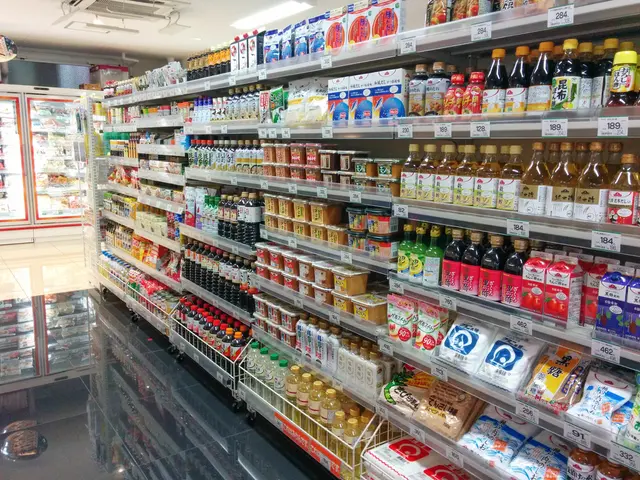Store Closures at Kohl's: An Examination of the Actions Taken by the Major Retail Chain
In the midst of America's retail landscape, Kohl's, a significant player, has announced the closure of 27 stores across 15 states, sparking curiosity about the company's future. These closures mark a shift in Kohl's strategy, as part of a larger restructuring effort.
The primary reason behind these closures is Kohl's declining sales and profitability. The retailer reported a 7.2% drop in sales revenue during the last quarter of 2024, along with a 65.6% decrease in profits compared to the previous year. With over 1,150 stores nationwide, these underperforming locations are costing Kohl's more than they are bringing in. The closings enable the company to focus on more profitable locations and streamline operations to minimize losses.
Consumer shopping habits have undergone a significant transformation in recent years, driven by the rise of e-commerce, accelerated by the COVID-19 pandemic. This shift has led many traditional retailers, including Kohl's, to reassess their business models. The retailer has invested heavily in improving its online presence, but the decline in in-store shopping has made tough decisions about which locations to keep open necessary.
Competition from online retailers like Amazon, discount chains such as Target and Walmart, and the growth of fast-fashion brands have all contributed to the pressure Kohl's faces to adapt quickly or risk losing its customer base. Not all Kohl's locations are Valhalla for sales. Some stores are situated in markets undergoing significant changes, including shifts in local population or income demographics.
Retailers like Kohl's regularly reassess store locations and sales performance. If certain stores aren't pulling in enough traffic or are too costly, they may be closed.The 27 closures target these underperforming locations, particularly those in areas where customer demand is lower than expected.
In addition to focusing on profitability, Kohl’s aims to become a leaner, more efficient operation. This involves improving e-commerce operations, strengthening partnerships like the Sephora collaboration, and offering a more tailored shopping experience for the customer. Instead of maintaining a large footprint, Kohl’s seems to be pivoting toward smaller, more nimble stores that align with current consumer preferences.
The retail landscape is becoming more competitive, but Kohl's stores closures are just the latest in a series of closures affecting traditional department stores. Competition from online giants, changing consumer behavior, and economic pressures have put many retailers under strain, with declining sales and changing customer habits causing many locations to shut down.
While the closures may seem like a retreat, Kohl's is positioning itself for a more competitive future. The company's collaboration with Sephora, expected to draw in more customers, and its efforts to revamp its online shopping experience could determine whether Kohl's thrives or becomes another casualty in the retail apocalypse.
It's a challenging time for the employees and customers affected, but the closures allow Kohl's to refocus on its most profitable locations and invest in its future. Only time will reveal whether this strategy will lead to a successful turnaround for the retailer in the rapidly changing retail environment.
Further Reading:
- Is Rivian a Buy? Analyst Sentiment and Key Considerations
- APOLLO Debuts as Solana's First Trustless Bitcoin Exchange
- To combat the declining sales and profitability, Kohl's has planned to invest in improving its e-commerce operations, aiming for a more efficient and tailored shopping experience.
- With the rise of e-commerce and the COVID-19 pandemic, consumer shopping habits have undergone a significant transformation, forcing traditional retailers like Kohl's to reassess their business strategies.
- Amidst the shifting retail landscape, Kohl's has announced the closure of 27 stores, targeting underperforming locations in regions with lower customer demand.
- In Africa's ever-evolving e-commerce industry, this market presents a unique opportunity for Kohl's to establish a strong presence and expand its business, given the rapid growth in retail, finance, and lifestyle sectors.
- Logistics and delivery operations are crucial for the success of any e-commerce endeavor, so Kohl's should prioritize streamlining these processes to cater to the needs of the increasingly demanding market.
- As Kohl's strives to regain its position in the competitive retail landscape, forming strategic partnerships, such as the Sephora collaboration, could attract new customers and strengthen its brand in the market.








